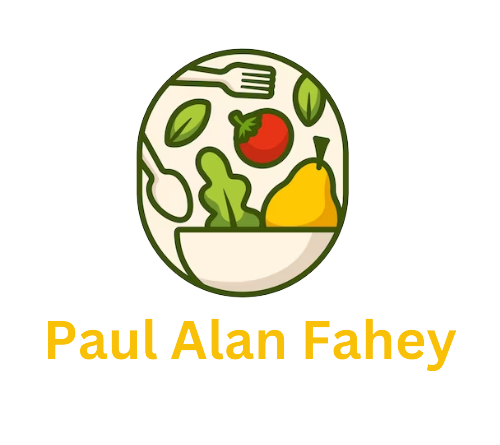Looking to embrace a healthier, more compassionate lifestyle? Discover the benefits of vegetarianism, from improved health to environmental impact. Learn about different types of vegetarian diets, how to overcome challenges, and the transformative power of this choice. Explore the journey of going vegetarian today.
Introduction
In a world where dietary choices have a profound impact on health, environment, and ethics, the concept of vegetarianism has gained significant traction. Whether it’s for health reasons, environmental concerns, or a deep respect for animal life, more and more people are adopting a vegetarian lifestyle. This article delves into the various facets of vegetarianism, its benefits, challenges, and how it can positively transform both individuals and the planet.
Vegetarianism is a dietary practice that involves abstaining from the consumption of meat, fish, and poultry. It encompasses various types of diets, such as lacto-ovo vegetarian, vegan, and pescatarian, each with distinct levels of exclusion of animal products.
Vegetarianism is more than just a dietary choice – it’s a lifestyle that reflects personal values, health considerations, and environmental consciousness. By opting for a vegetarian diet, individuals abstain from consuming meat, fish, and poultry, while still enjoying a wide variety of plant-based foods. This choice is often driven by ethical concerns about animal welfare, the desire to reduce environmental impact, and the pursuit of better health. Whether someone chooses a lacto-ovo vegetarian diet, which includes eggs and dairy, or fully embraces veganism, which excludes all animal products, the journey towards vegetarianism involves exploring new culinary horizons, addressing nutritional concerns, and making a positive impact on the planet.

Vegetarianism encompasses a holistic approach to life, extending beyond dietary preferences to encompass broader ethical, health, and environmental considerations. Individuals who adopt a vegetarian lifestyle choose to forgo the consumption of meat, fish, and poultry, opting instead for a diverse range of plant-based foods. This choice is often rooted in a deep respect for animal life, driven by the recognition of the environmental toll of meat production, and motivated by the pursuit of improved well-being.
Within the realm of vegetarianism, there are different paths one can take. The lacto-ovo vegetarian diet includes eggs and dairy products, offering a balanced nutritional profile. On the other hand, the vegan diet is more stringent, excluding all animal-derived products, even honey and gelatin. Additionally, some people follow a pescatarian diet, which includes fish and seafood alongside plant-based foods.
By adopting a vegetarian lifestyle, individuals can make a profound impact. Firstly, it positively affects personal health. Research indicates that a well-planned vegetarian diet can lower the risk of chronic diseases, such as heart disease, diabetes, and certain cancers. The emphasis on fruits, vegetables, whole grains, and legumes provides a rich source of essential nutrients and antioxidants that contribute to overall well-being.
Understanding Vegetarianism
Defining Vegetarianism
At its core, vegetarianism is a dietary practice that abstains from consuming meat, fish, or poultry. However, the variations within vegetarianism are more nuanced than they might seem at first glance.
Types of Vegetarian Diets
- Lacto-Ovo VegetarianThis diet includes plant-based foods, eggs, and dairy products while excluding meat, fish, and poultry.
- VeganVegans take it a step further by avoiding all animal products, including dairy and eggs, and often opt for plant-based alternatives.
- PescatarianPescatarians primarily consume plant-based foods but include fish and seafood in their diet.
Benefits of Embracing a Vegetarian Lifestyle
Improved Health
A well-balanced vegetarian diet can offer a myriad of health benefits. Studies suggest that vegetarians tend to have lower risks of heart disease, high blood pressure, and certain types of cancer. The abundance of fruits, vegetables, whole grains, and legumes provides essential nutrients and antioxidants.
Environmental Impact
The meat industry is a significant contributor to greenhouse gas emissions, deforestation, and water pollution. Choosing a vegetarian diet reduces one’s carbon footprint and conserves natural resources, making it an environmentally conscious choice.
Ethical Considerations
Many individuals opt for vegetarianism due to ethical concerns surrounding animal welfare. The awareness of factory farming practices and the desire to reduce animal suffering drive them to eliminate animal products from their diet.
Navigating the Vegetarian Journey
Overcoming Nutritional Concerns
While a vegetarian diet can be highly nutritious, careful planning is essential to ensure adequate intake of nutrients such as protein, iron, calcium, and vitamin B12. Plant-based sources like tofu, lentils, spinach, and fortified foods can help address these concerns.
Exploring Culinary Diversity
Embracing vegetarianism opens the door to a world of culinary exploration. With an array of fruits, vegetables, grains, and spices, individuals can create diverse and flavorful meals that cater to their taste preferences.
Challenges of a Vegetarian Lifestyle
Social Dynamics
Navigating social situations can be challenging, as non-vegetarian options often dominate gatherings and events. Finding common ground while staying true to one’s values requires communication and understanding.
Nutritional Myths
Misconceptions about vegetarian diets, such as inadequate protein intake, still persist. Education and consultation with nutrition experts can dispel these myths and guide individuals toward a balanced diet.

Embracing Change for a Better Future
Impactful Choices
Choosing a vegetarian lifestyle is a powerful way to contribute to a sustainable future. By reducing meat consumption, individuals can directly participate in preserving ecosystems, conserving water, and mitigating climate change.
Personal Transformation
Beyond the external impact, vegetarianism can bring about a personal transformation. It encourages mindful eating, fosters a deeper connection with nature, and aligns one’s actions with their values.
Conclusion
In a world where every meal choice carries implications beyond the plate, embracing a vegetarian lifestyle emerges as a meaningful and holistic decision. From enhancing personal well-being to safeguarding the environment and respecting animal life, this journey encompasses a tapestry of benefits. By understanding its nuances, addressing challenges, and celebrating its joys, one can embark on a path that leads to a healthier, more compassionate, and sustainable future.
FAQs
- Is a vegetarian diet suitable for all age groups?Yes, a well-planned vegetarian diet can be suitable for people of all ages, including children and the elderly. Proper nutritional planning is key.
- Can I get enough protein on a vegetarian diet?Absolutely. Plant-based protein sources like beans, lentils, nuts, and tofu can provide ample protein when incorporated into a balanced diet.
- How can I handle social situations where vegetarian options are limited?Communicate your dietary preferences beforehand and offer to bring a dish that aligns with your needs. Most hosts are accommodating and appreciate the gesture.
- What’s the environmental impact of vegetarianism?Adopting a vegetarian diet can significantly reduce carbon emissions, land use, and water consumption, contributing to a more sustainable planet.
- What are some easy ways to start a vegetarian journey?Begin by gradually replacing meat with plant-based alternatives in your favorite dishes. Experiment with new recipes and explore the variety of vegetarian foods available.


